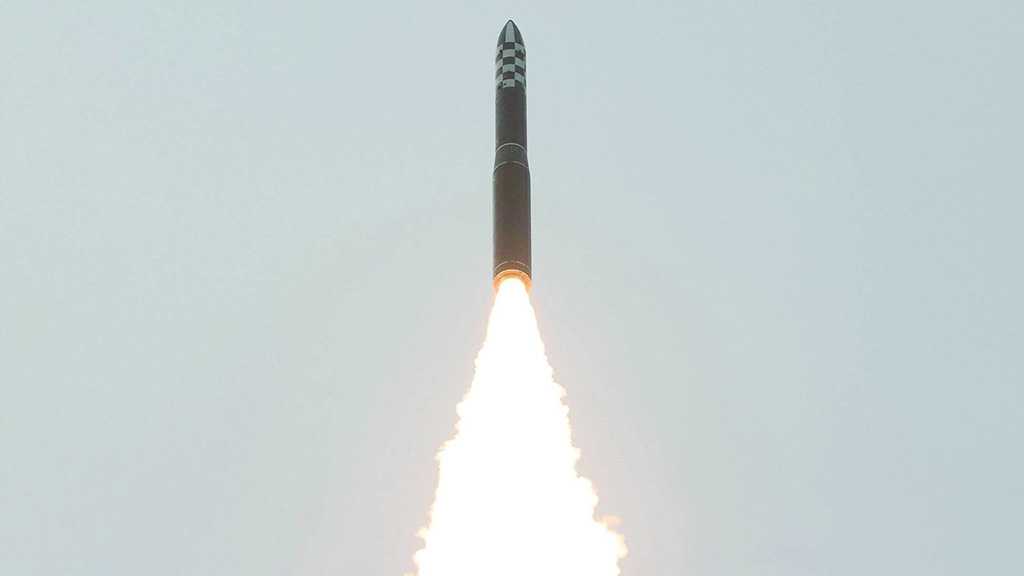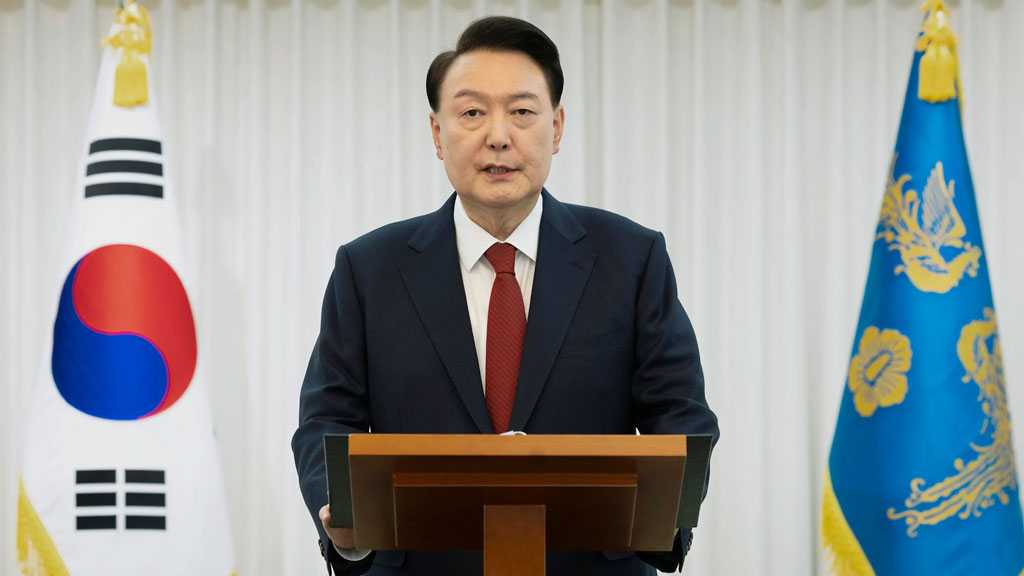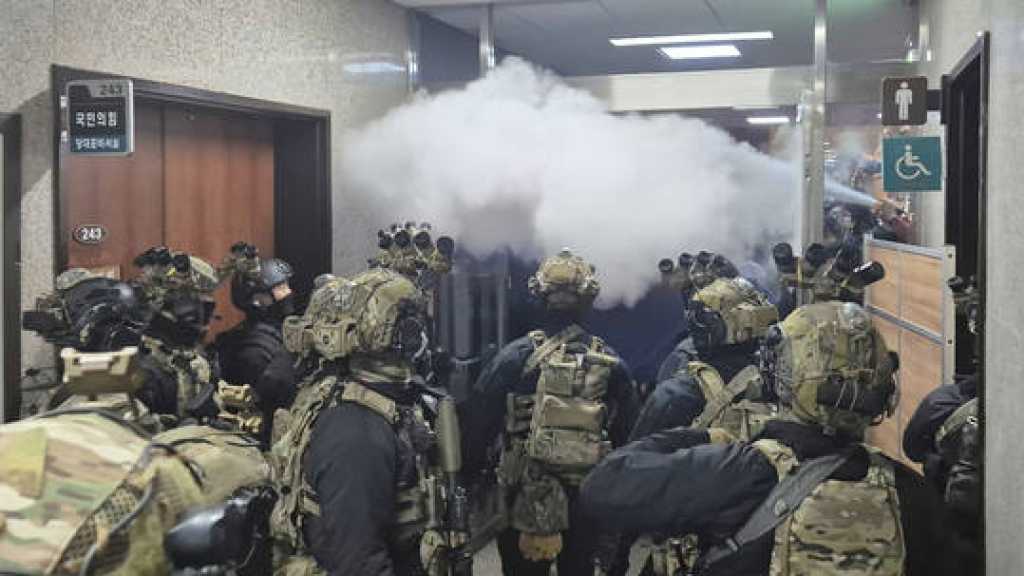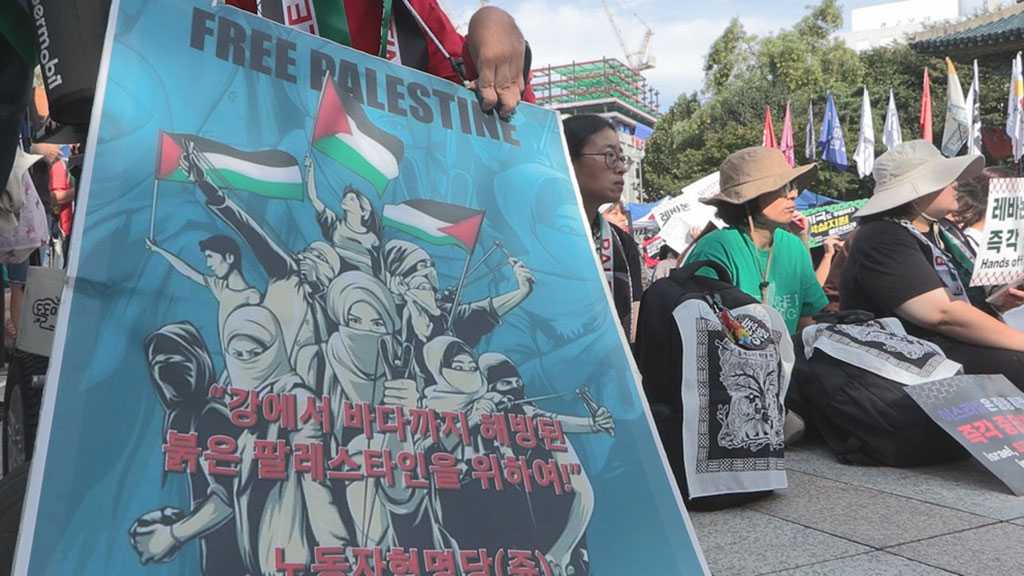
North Korea Fires Two Missiles After US Nuke-Armed Submarine Docks in South

By Staff, Agencies
North Korea has fired two ballistic missiles into the East Sea hours after an American nuclear-armed submarine made its first South Korean port call in decades.
The latest launches were reported by South Korea’s Joint Chiefs of Staff [JCS], according to Yonhap news agency, who said they were fired from the Sunan area in Pyongyang off its east coast early Wednesday, plunging into the East Sea, also known as the Sea of Japan.
The launches, which were confirmed by Japan’s defense ministry, are the latest in a series of weapons tests by Pyongyang in response to Washington and Seoul’s joint provocations following the US-South Korea agreement to deploy nuclear assets to the South.
Ahead of the US nuclear missile submarine’s arrival, a North Korean defense ministry spokesperson had warned last week that the deployment of nuclear assets to the Korean Peninsula “may incite the worst crisis of nuclear conflict in practice”.
North Korea has vowed to respond proportionally to the agreement reached recently between the South and the United States allowing the deployment of American nuclear assets to the Korean Peninsula.
Addressing the UN security council last week, North Korean envoy to the UN, Kim Sung, said the US in April cooked up the "Washington Declaration", a program for nuclear confrontation with North Korea, according to the official Korean Central News Agency [KCNA].
In its plan, the US is openly planning to discuss the use of nuclear weapons against Pyongyang during meetings of the "Nuclear Consultative Group" which will be the parent body of the US-Japan-south Korea “tripartite nuclear alliance”, Kim said adding that it is driving the regional situation to the brink of an unprecedented nuclear war.
South Korea on Wednesday condemned the North's missile launches as "acts of significant provocation" and a violation of UN Security Council resolutions.
“We are analyzing details, but we estimated that they have fallen outside Japan's exclusive economic zone, east of the Korean Peninsula,” Japan's defense ministry said in a tweet.
In related news, US Indo-Pacific Command Commander Admiral John Aquilino acknowledged Pyongyang's missile capability, expressing concerns during an annual gathering taking place in Aspen, Colorado.
Aquilino said during the Aspen Security Forum, a think-tank discussion hosted by the Aspen Institute on Tuesday, the United States is still reviewing North Korea's nuclear capability. “The capability that they've delivered and demonstrated the other day we assess could reach the United States”.
Meanwhile, tensions are running high on the Korean Peninsula after North Korea test-fired a Hwasong-18 intercontinental ballistic missile last Wednesday.
North Korea has been under harsh sanctions by the United States and the United Nations Security Council for years over what Pyongyang defines as its deterrent nuclear and ballistic missile programs.
Test-firing missiles are essential for the further development of the strategic nuclear force of the Democratic People's Republic of Korea [DPRK] and, at the same time, serve as a strong practical warning to clearly show the adversaries, KCNA reported.
The missile launches “make the enemies clearly realize once again how risky and reckless their anti-DPRK military option is,” the report added.
Kim Jong Un's sister Kim Yo Jong asserted that Pyongyang would strive towards "further perfection" of its nuclear deterrent.
“The more the enemies are dead set on staging nuclear war exercises, and the more nuclear assets they deploy in the vicinity of the Korean peninsula, the stronger the exercise of our right to self-defense will become in direct proportion to them,” she said, according to KCNA.
“The present situation, in which the US and South Korea’s frantic confrontation attempts that will bring a new chain of nuclear crises to the Korean peninsula and Northeast Asia are nearing an intolerable critical point, requires the DPRK to put spurs to bolster the capability for self-defense and strengthening the nuclear war deterrence for self-defense in order to deter the reckless political and military provocations of the hostile forces by physical force and to impregnably defend itself,” KCNA wrote in its report last week.



